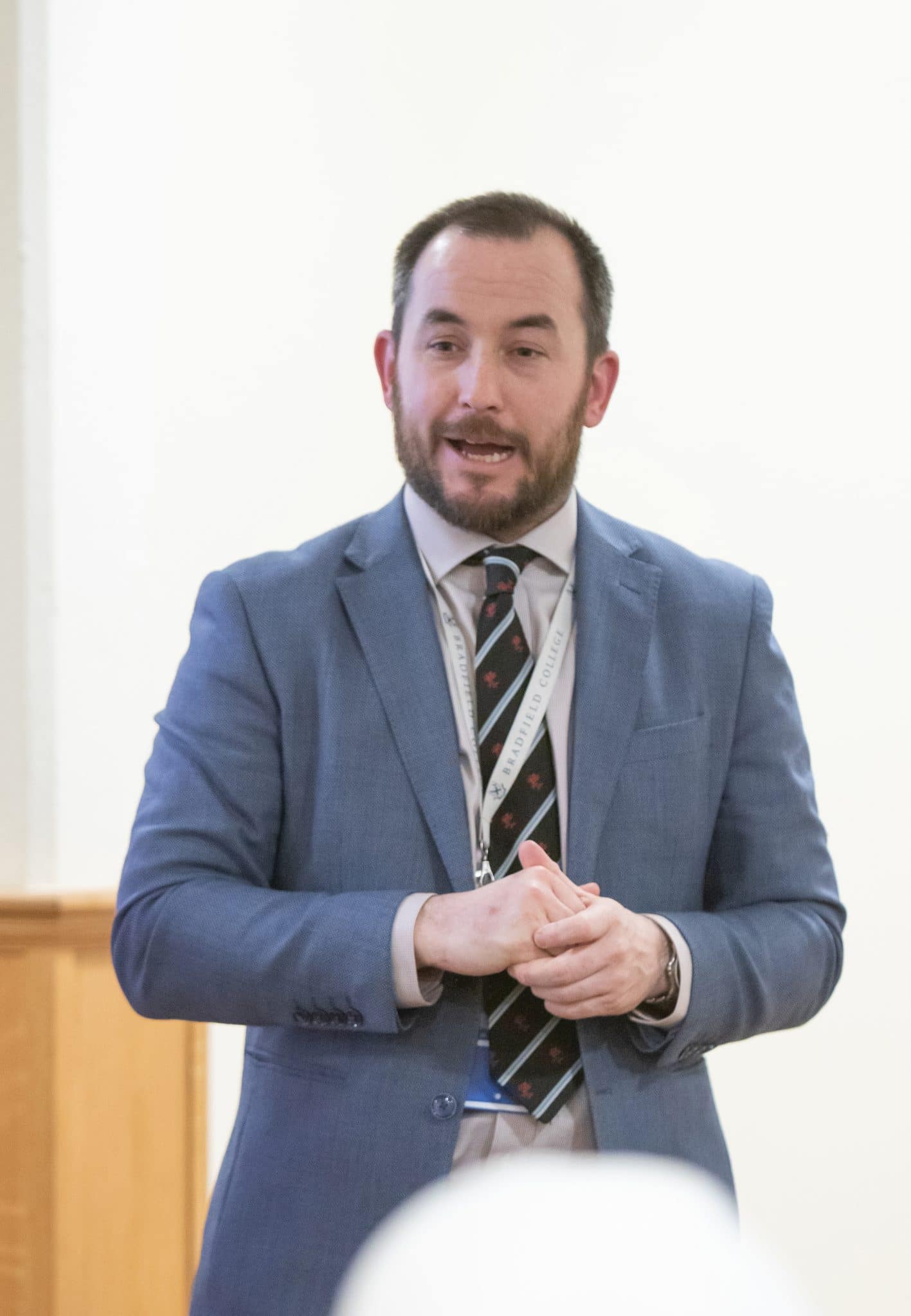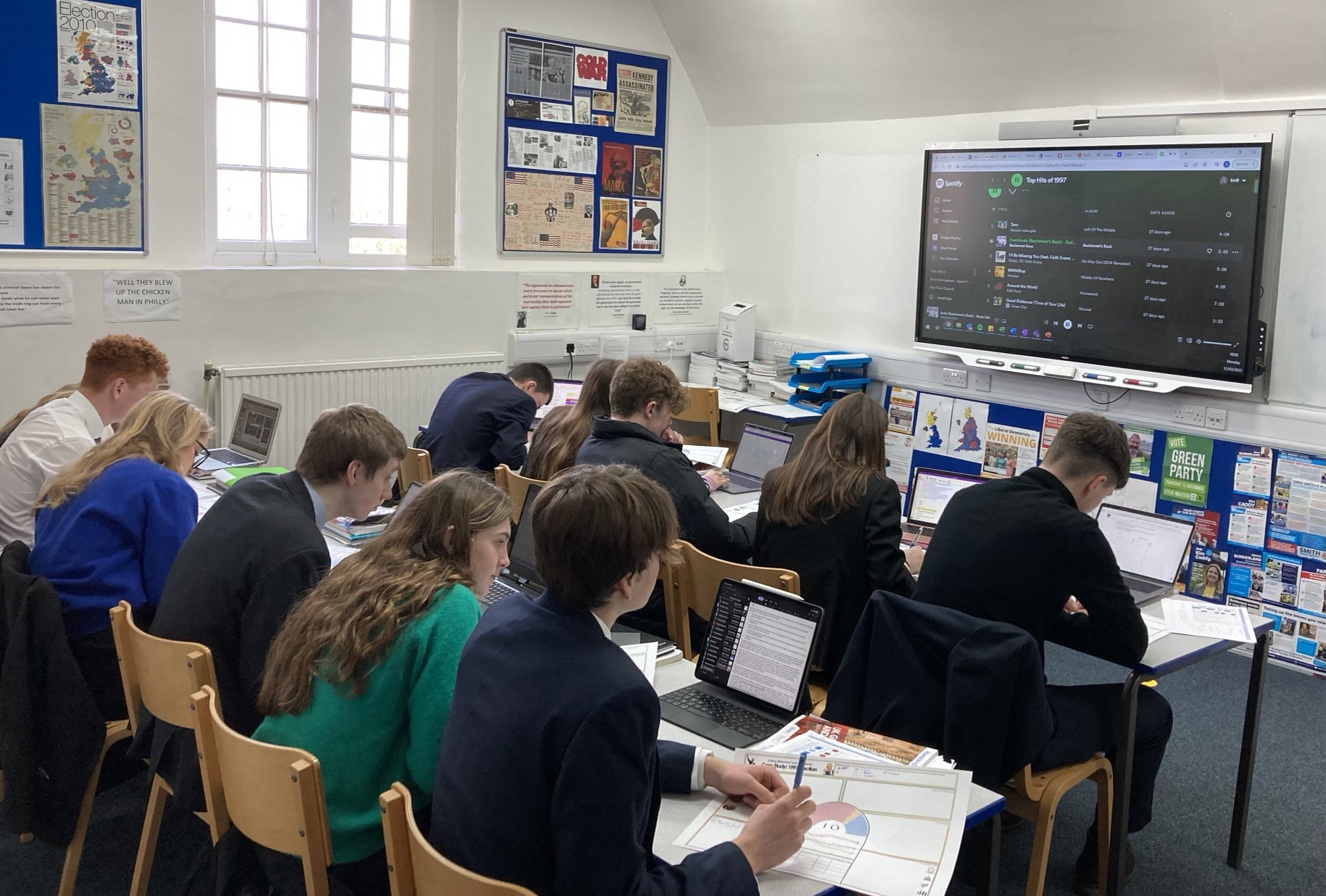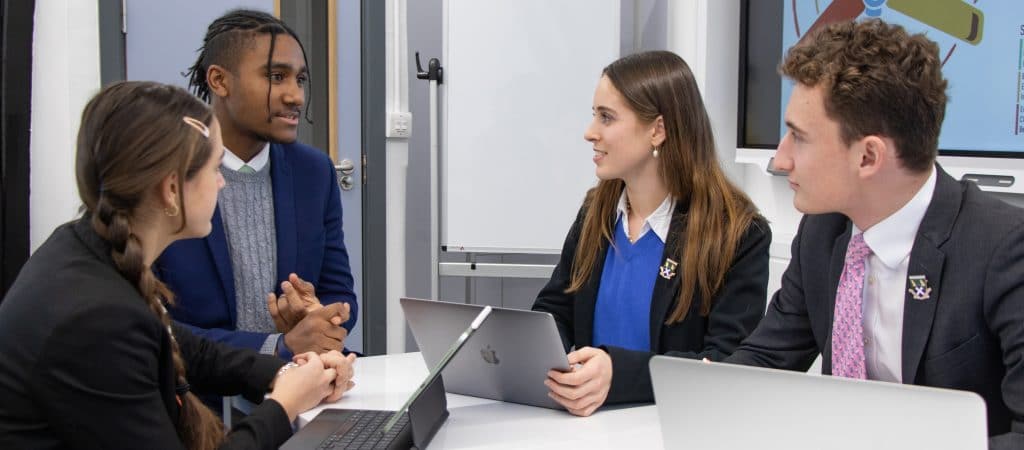When I tell people what I teach, they often respond with “what a fantastic time to be teaching politics”; but the truth is there is never a bad time to teach such a dynamic subject. The constantly changing trends in both UK and international politics provide us with endless opportunities for debate and discussion both between and with the pupils. This is undoubtedly what attracts many of our pupils who are striving for a new and different challenge after their GCSEs. However, the volatile political landscape also brings plenty of challenges for us as teachers. While the broad concepts like power, sovereignty, legitimacy and accountability may remain the same, our resources constantly require updating to keep pace with contemporary developments.
ENCOURAGE DIFFERENT PERSPECTIVES, EXPRESSED IN AN OPEN AND TOLERANT ENVIRONMENT.
From a political perspective, there is currently unprecedented scrutiny about what is being taught in our classrooms in an increasingly polarised post-Brexit society. The Department for Education recently took the unusual step of reissuing the guidance on political impartiality in schools, generating controversy and increasing discussion in the media. At Bradfield we have always strongly believed in the need to encourage different and competing perspectives, expressed in an open and tolerant classroom environment. Many of our pupils possess strong opinions, but to better understand their own convictions we urge them to analyse and consider arguments from a variety of angles; can you really defend your own position if you do not understand the counter views?
This is central to our wider mission to develop open- minded young people who can understand and empathise with others. By virtue of its very nature, Politics has been in the vanguard of discussions around equality, diversity, and inclusion (EDI) at the College. Alongside looking for greater variety in the case studies we introduce to pupils, we have also opted to study Feminism as the ‘non-core’ ideology on the A Level programme; this has provided opportunities for pupils to debunk some of the misconceptions around the term and to further explore debates about gender equality.
FOSTERING POLITICAL PARTICIPATION AMONGST OUR YOUNGEST PUPILS.
Next year we will have a record number of pupils studying Politics in the Sixth Form. However, the subject is not only offered to our senior pupils but has also become a core rotation on the Divisions curriculum, fostering political participation amongst our youngest pupils. Al MacEwen, Director of the Bradfield Society and an experienced Politics teacher, introduces Faulkner’s pupils to the UK system and explores political participation. We believe that encouraging democratic engagement and civic responsibility is a crucial part of becoming a good member of society.
Pupils are given opportunities to do this in both a formal and informal setting; during their Bradfield careers, our current Upper Sixth pupils have taken part in two mock general elections, in 2017 and 2019, but I’m hoping we won’t have to organise another one just yet!







